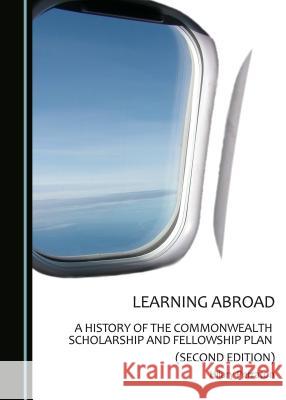Learning Abroad: A History of the Commonwealth Scholarship and Fellowship Plan (Second Edition) » książka
Learning Abroad: A History of the Commonwealth Scholarship and Fellowship Plan (Second Edition)
ISBN-13: 9781443880633 / Angielski / Miękka / 2015 / 265 str.
Commonwealth scholarships began in 1959. They have since moved over 30,000 people across borders, launching them into influence as politicians, poets, painters, professors--and the rest. Their stories illuminate the sociology and politics of higher education, of the Commonwealth, and of its member countries: they include the last scholar before apartheid took South Africa out of the Commonwealth, who became a high court judge, and the first after it came back, now a vice-chancellor. The second edition of this book, revised and updated since it was first published to mark the scholarships' jubilee, sets out the narrative of the scholarship plan from its unlikely conception in a Commonwealth trade conference to its survival in the changed world of 2015. This book looks at the people who selected scholars, from the Lord Chamberlain as a break from censoring plays in the 1960s to the daughter of a pig farmer in the 2000s, and at the lives of the scholars and former scholars themselves. By asking who was selected, how, and why, it examines the policies of countries offering scholarships and those receiving them, looks at their role within the universities of Africa, Asia and the Caribbean, discusses their experience as they studied abroad, and assesses their long-term impact. Three themes particularly stand out. First, scholarship policy has been shaped by the interplay of national politics and education. Second, the world's four million cross-border university students are themselves now big business and the stuff of international politics; the Commonwealth record offers a microcosm of their experience. Third, the lives and achievements of former scholars answer the policy question: was investing in scholarships a good way of spending public money?











